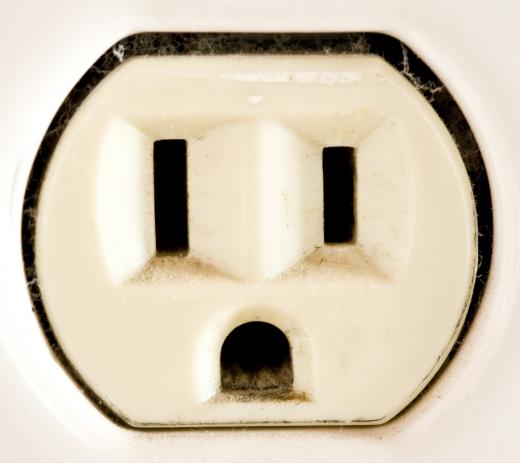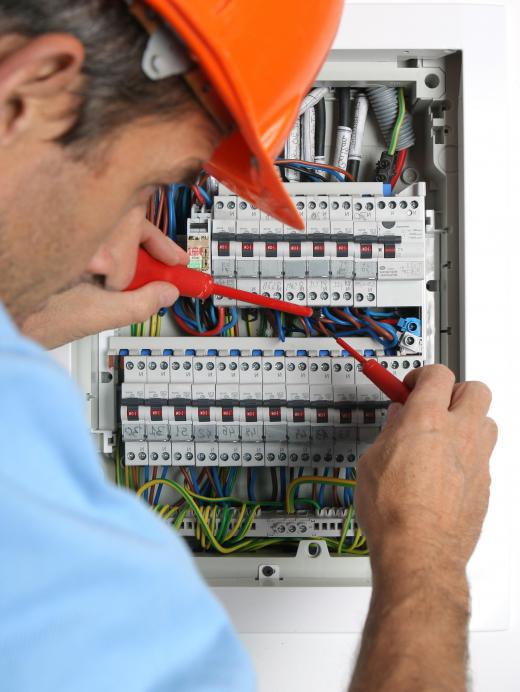An electrical ground is a reference point built into an electrical circuit, used as a baseline when measuring other electrical currents. It also serves as the return path for the circuit. Its purpose is to allow any spikes in electricity to be directed away from the circuit and into the ground, where it is harmlessly absorbed. In Great Britain, the term used is earth or earthing to indicate that an electrical circuit is ground.
In the installation of mains electricity, an electrical ground describes a wire connected directly to the Earth. The wire usually runs along the body of the actual metal equipment cases. The purpose of the wire is to divert any excess electrical current away from the equipment.

Should an electrical current pass through the ground, the circuit is broken and the equipment will not receive any more power. The ground did it's job, however, stopping the additional current from destroying the equipment. If an electrical ground is not properly installed into the ground itself, then the electrical energy remains in the circuit and can cause a fire and explosion.

Electrical circuits are designed to carry electricity, regardless of its form. Static electricity can build up in a circuit through poor insulation and create a dangerous situation, where the circuit is overloaded with electricity. The ground is the escape route for this additional energy and is built into most electric devices. Some devices, including those on airplanes and boats, have electric grounds, even though they don't actually connect to the Earth.
Electrical power equipment usually comes with a permanently connected grounding conductor. In the US, many electrical plugs have three prongs, arranged in a triangular formation, with two vertical prongs parallel to each other and one round conductor located below. This third conductor has a pin that connects it to the ground built into the outlet. The formation of the plug may differ in other countries.
Outlets in the US are all designed to accommodate the three prong plug. When the outlet is being installed, the third prong is connected to the electrical ground. This method ensures that each item plugged into an electrical outlet can be linked to the ground.
People should never break off the third prong of an electrical plug, and if it breaks off, the product should be returned to the manufacturer. The power supply to consumers fluctuates widely and any excess current can cause an electrical surge without a ground.
